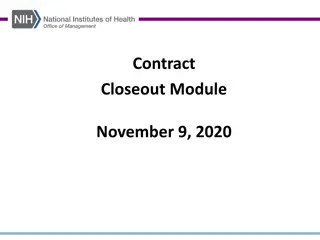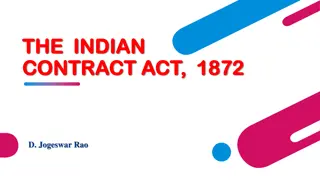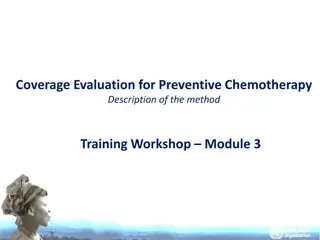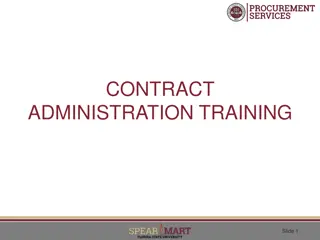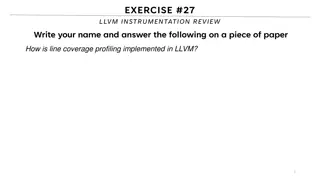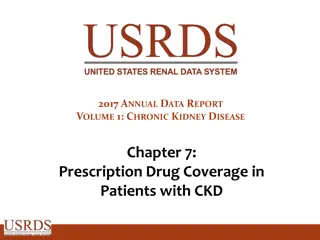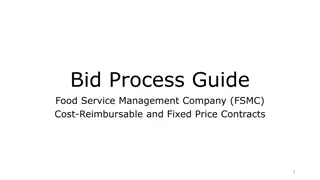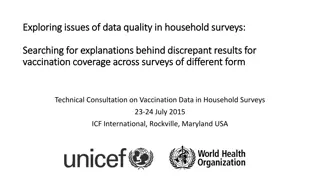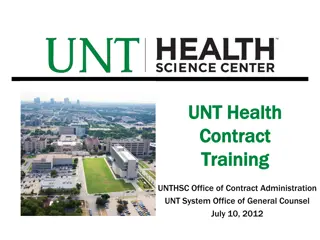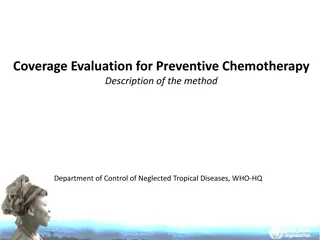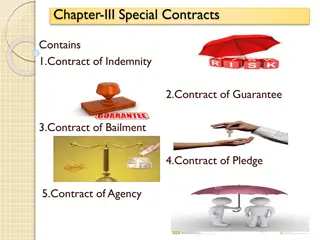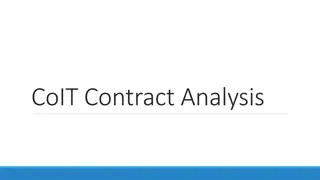Service Contract Act Coverage
The Service Contract Act (SCA) applies to contracts exceeding $2,500 made by the Federal Government or D.C. for services in the U.S. Learn about SCA requirements, elements, and federal contracting agencies.
Download Presentation

Please find below an Image/Link to download the presentation.
The content on the website is provided AS IS for your information and personal use only. It may not be sold, licensed, or shared on other websites without obtaining consent from the author.If you encounter any issues during the download, it is possible that the publisher has removed the file from their server.
You are allowed to download the files provided on this website for personal or commercial use, subject to the condition that they are used lawfully. All files are the property of their respective owners.
The content on the website is provided AS IS for your information and personal use only. It may not be sold, licensed, or shared on other websites without obtaining consent from the author.
E N D
Presentation Transcript
SCA Coverage The Service Contract Act applies any contract that (1) is made by the Federal Government or District of Columbia, (2) involves an amount exceeding $2,500, and (3) has as its principal purpose the furnishing of services in the United States (4) through the use of service employees. 41 U.S.C. 6702(a).
Any Contract 29 CFR 4.110 and 29 CFR 4.111 The SCA was intended to apply to a wide variety of contracts, and the nomenclature, type, or particular form of contract used by procurement agencies is not determinative of coverage. 29 CFR 4.111(a) It makes no difference in the coverage of a contract whether the contract services are procured through negotiation or through advertising for bids. 29 CFR 4.110 The contract does not have to be of direct benefit to the federal public, but can benefit the general public (such as a concessionaire contract) 29 CFR 4.133(a)
Requirements of SCA (29 C.F.R. 4.6) Contracts in excess of $2,500 must contain labor standards clauses and: Minimum monetary wages and fringe benefits determined by Department of Labor (DOL) Recordkeeping - Posting requirements Safety and health provisions Statement of rates paid to federal employees
Requirements of SCA (Contd.) Payment of FLSA minimum wage for contracts of $2,500 or less, or contracts exceeding without wage determination: FLSA Minimum Wage: Effective July 24, 2009 = $7.25
Elements of SCA Coverage (29 C.F.R. 4.107, 4.108 & 4.110) Contracts entered into by Federal Government and District of Columbia Contracts principally for services Contracts performed in the U.S. Contracts performed through the use of service employees
Federal Contracting Agencies (29 C.F.R. 4.107 & 4.108) Agencies or instrumentality Department of Defense (DOD) Wholly owned corporations of the Government U.S. Postal Service Non-appropriated fund activities Military post exchanges (PX s) Contracts entered into by District of Columbia
Contracts to Furnish Services (29 C.F.R. 4.111 & 4.130) The SCA does not define or limit the types of services that may be contracted for. Examples of service contracts: Security and guard services Janitorial services Cafeteria and food services Support services at Government installations
Contracts in the US (29 C.F.R. 4.112) 50 States, the District of Columbia, Puerto Rico, the Virgin Islands, Outer Continental Shelf, American Samoa, Guam, Wake Island, Johnston Island, and the Northern Marianas (Canton Island, Eniwetok Atoll, and Kwajalein Atoll are no longer a part of the United States) Any portion of a contract principally for services performed in the United States is covered
Use of service employees (29 C.F.R. 4.113) Section 8(b) of SCA defines service employee as: Any person engaged in performance of contract, except Employees who qualify for exemption as bona fide executive, administrative or professional employees under the FLSA (29 C.F.R. Part 541) Employee coverage does not depend on contractual relationship (29 C.F.R. 4.155)
Contracts Not SCA Covered (29 C.F.R. 4.134) Contracts primarily for something other than services, e.g., construction Contracts for leasing of space Contracts for professional services Federally-assisted contracts for services entered into by state governments, e.g., Medicaid and Medicare programs
SCA Statutory Exemptions SCA does not apply to the following: Contracts for construction of public buildings or public works covered by DBA PCA work required by contract e.g. manufacturing or supplies Contracts for carriage of freight or personnel where published tariff rates are in effect (excluding mail haul contracts)
SCA Statutory Exemptions (cont d.) Contracts for services by communications companies (e.g., radio, telephone) subject to the Communications Act of 1934 Contracts for public utility services, including electric light and power, water, steam, and gas Employment contracts providing for direct services to a Federal agency by individuals Contracts with the U.S. Postal Service principally for operation of postal contract stations
Authority to Grant Exemptions Standard Necessary and proper in the public interest or to avoid serious impairment of government business; and In accord with remedial purpose to protect prevailing labor standards
Workers with Disabilities (29 C.F.R. 4.6(o)) Contractors, who obtain FLSA section 14 certificates for workers on SCA-covered contracts are: Allowed to pay less than prevailing wage, but Must pay prevailing fringe benefits Health and welfare benefits in full Vacation and holiday benefits based on commensurate rate and hours worked
Regulatory Exemptions (29 C.F.R. 4.123(d)-(e)) SCA does not apply to the following: Postal Service contracts with common carriers Postal Service mail contracts with owner- operators (i.e., individuals, not partnerships) Certain items for commercial services
Commercial Services (29 C.F.R. 4.123(e)(1)) Contracts and subcontracts for maintenance, calibration, and repair of: ADP & office information/word processing systems Scientific & medical apparatus or equipment where the application of microelectronic circuitry or other technology of at least similar sophistication is an essential element Office/business machines where services performed by supplier or manufacturer
Commercial Services (29 CFR 4.123(e)(2)) For the following seven services: Maintenance and servicing of motorized vehicles owned by Federal agencies Issuance and servicing of credit, debit, or similar cards by Federal employees Lodging, meals, and space in hotels/motels for conferences
Commercial Services (contd) Real estate services Transportation on regularly scheduled routes Relocation services Maintenance services for all types of equipment obtained from manufacturer or supplier under a sole source contract
Commercial Services Criteria to Apply Exemption Services offered and sold regularly Contract awarded on sole source basis or on basis of factors in addition to price Services furnished at market or catalog prices
Commercial Services Criteria (cont d.) Employee spends small portion of available hours on government contract Employee receives same compensation plan Contracting officer and prime contractor certify that criteria can be met and complied with
Disclaimer This presentation is intended as general information only and does not carry the force of legal opinion. The Department of Labor is providing this information as a public service. This information and related materials are presented to give the public access to information on Department of Labor programs. You should be aware that, while we try to keep the information timely and accurate, there will often be a delay between official publications of the materials and the modification of these pages. Therefore, we make no express or implied guarantees. The Federal Register and the Code of Federal Regulations remain the official source for regulatory information published by the Department of Labor. We will make every effort to keep this information current and to correct errors brought to our attention.


